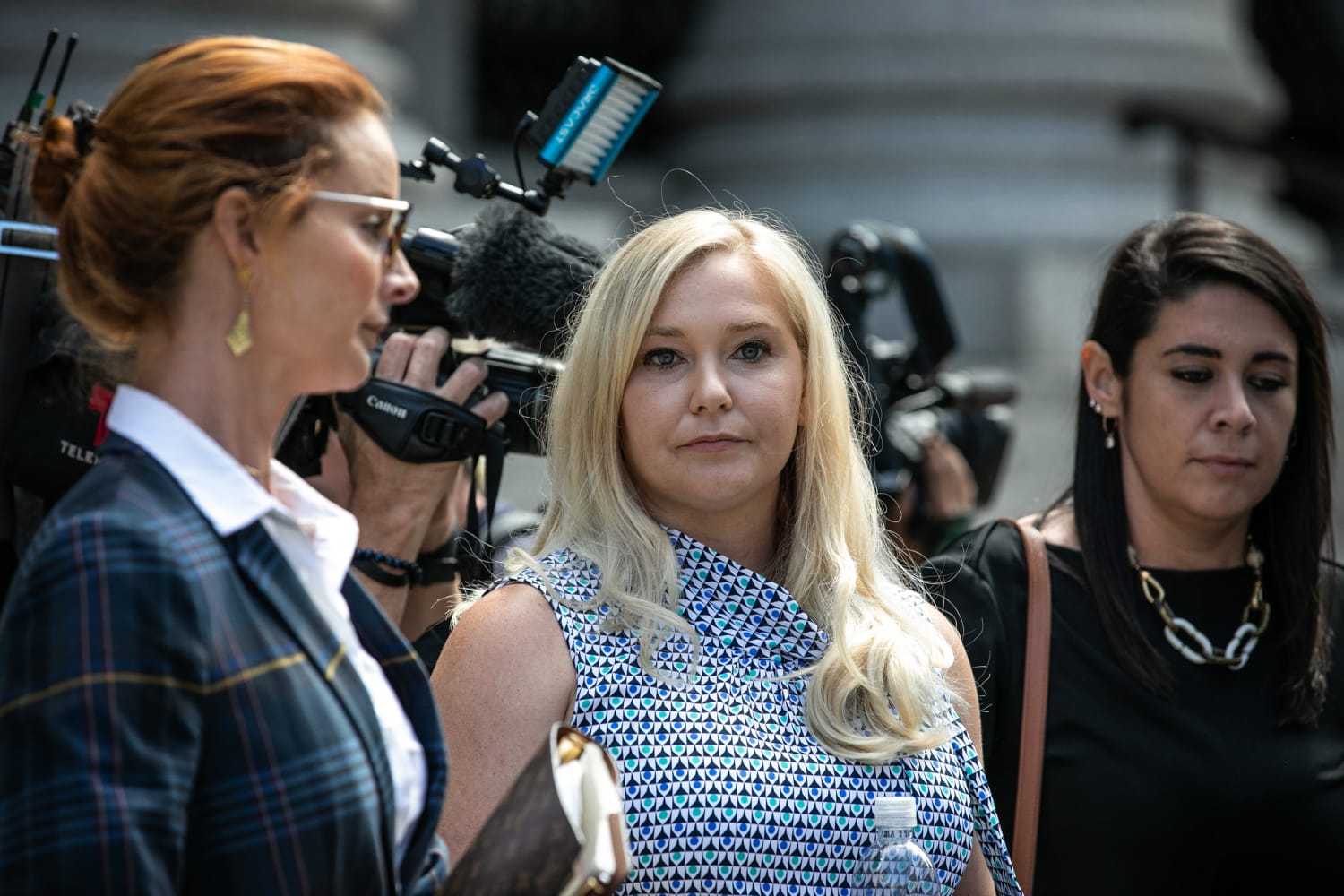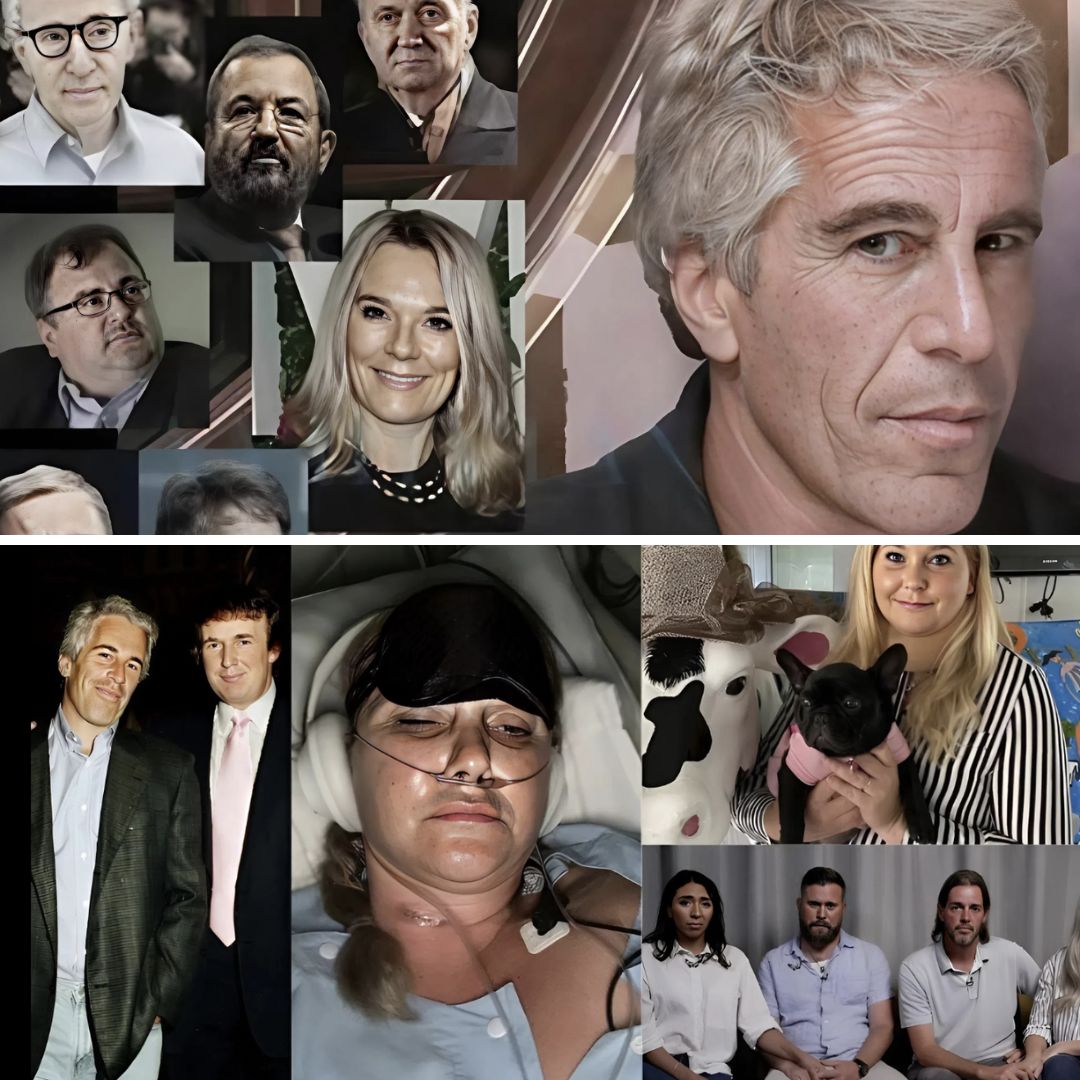Breaking the Silence: Virginia Giuffre’s Memoir Unleashes a Reckoning Across Power and Privilege
For over twenty years, Virginia Giuffre’s name was synonymous with scandal — a shadow cast by one of the most infamous crimes of the 21st century. She was the teenager whose story reached into the highest corridors of wealth and influence, her life entangled with the crimes of Jeffrey Epstein and Ghislaine Maxwell. Yet for most of that time, Giuffre herself remained a voiceless figure — described, dismissed, and dissected by others.
Now, with her long-awaited memoir Shattered Silence, Giuffre has taken back her narrative. The book, which several publishers reportedly refused to print due to fear of legal retaliation, is finally set for release — and its contents are shaking the very institutions that once sought to silence her.
The Girl They Tried to Erase

Giuffre’s memoir opens not with the glamour of Palm Beach or Manhattan, but in the fragmented world of her Florida childhood — a portrait of instability, neglect, and a longing for safety. “When the predators came,” she writes, “they didn’t find a runaway. They found a girl who already thought she was invisible.”
Her prose is sharp, deliberate — the voice of someone who has lived through both horror and scrutiny. She rejects the media’s early depictions of her as a “naive runaway,” instead exposing a calculated web of grooming and exploitation.
Modeling promises. Private introductions. Lavish invitations that turned into captivity. Giuffre meticulously reconstructs how Epstein’s operation functioned not as a chaotic scandal, but as a structured business — one that profited from human vulnerability.
“The day I met Epstein,” she writes, “was the day I learned what power really looked like — the kind that smiles while it cages you.”
The Empire of Silence

The second section of Shattered Silence dissects the system that allowed Epstein’s empire to thrive. Giuffre names not only Epstein and Maxwell but the lawyers, assistants, and intermediaries who kept the machinery turning.
What emerges is not just a story of individual evil, but a portrait of collective complicity — of institutions that looked away.
“They told me justice was a process,” Giuffre writes. “But justice is a privilege when you’re poor. I watched men buy silence with the same ease they bought champagne.”
Through her account, she exposes how settlements, nondisclosure agreements, and private influence built an invisible wall around Epstein’s circle. Even after his death, that wall has remained standing — fortified by money, fear, and reputation.
Giuffre does not write as a victim seeking pity. She writes as a witness documenting an ecosystem of impunity. “This isn’t about one man,” she declares. “It’s about a world that let him exist.”
The Forgotten 27
One of the book’s most devastating chapters, The Forgotten 27, recounts the other girls Giuffre claims were exploited alongside her. Some, she says, vanished. Others died young — their stories erased from legal records and buried under sealed documents.
Each brief account — some only initials, others partial names — becomes a memorial. The dancer from Eastern Europe who disappeared after a trip to a private island. The waitress from Miami who tried to sue but was quietly persuaded to withdraw.
“I carried their ghosts with me,” Giuffre writes. “This book is the only grave they’ll ever have.”
Investigative files referenced in the memoir, their details redacted for safety, reportedly include corroborating evidence — from flight logs to financial records. Legal analysts warn that if verified, the book could reopen dormant investigations into the network that protected Epstein and his associates.
The Cost of Telling the Truth

Giuffre’s story is not only about what happened in the past but what followed: years of retaliation, discrediting campaigns, and online harassment.
“They called me unstable, manipulative, money-hungry,” she recalls. “It’s easier to destroy a woman’s credibility than to confront what she’s saying.”
Even after Epstein’s death in 2019, the attacks continued — anonymous threats, leaked documents, and attempts to intimidate her family. She describes living under near-constant surveillance paranoia:
“Every time I opened my laptop, I wondered if someone was watching. Every letter without a return address felt like a countdown.”
Her testimony, both in court and in the media, has often been met with skepticism. Shattered Silence responds not with outrage, but with evidence — timelines, transcripts, and corroborated documents that support her claims.
A Legal Tightrope
The book’s publication is itself an act of defiance. Lawyers familiar with the manuscript have described it as “meticulously vetted” — every claim cross-checked by legal and forensic consultants. Still, experts warn that lawsuits are inevitable.
“They can sue me,” Giuffre writes, “but they’ve already done worse.”
Her words highlight the very imbalance her memoir seeks to expose: a justice system that defends the powerful while exhausting those who dare to challenge them. Shattered Silence is not just her story — it’s an indictment of how easily influence bends truth.
A Mirror to the Culture
Beyond the courtroom, Giuffre’s memoir asks a deeper question: Has society truly changed since the height of #MeToo, or have we simply become fluent in the language of outrage?
She spares no one — not the media that sensationalized her pain, not the public that treated her trauma as spectacle, and not the activists who championed her story only when it was convenient.
“They wanted villains and heroes,” she writes. “But I was neither. I was human.”
That humanity — flawed, resilient, unfiltered — is what gives Shattered Silence its gravity. It’s not about reclaiming victimhood. It’s about reclaiming agency.
Healing, Not Just Justice
In its final chapters, Giuffre turns away from courtrooms and toward the quiet, difficult work of recovery. She writes about her children, her advocacy for trafficking survivors, and the long road of therapy that helped her stop apologizing for surviving.
“Survival isn’t victory,” she reflects. “It’s choosing to wake up each day when the world still wants you to disappear.”
Her distinction between justice and healing feels like the memoir’s thesis: one is external, often elusive; the other, internal and ongoing.
The Reckoning to Come
Early reviewers have described Shattered Silence as “a meticulous excavation of truth” and “the book that forces us to look again at what we chose to ignore.”
Yet its most enduring power may lie in what it demands of readers — not sympathy, but accountability.
The system that enabled Epstein’s empire, Giuffre insists, still exists in different forms — polished, protected, and profitable. The book is her way of breaking not just personal silence, but a collective one.
“They told me this book would never see daylight,” she writes in the epilogue. “But daylight always comes. It just burns slower for the guilty.”
Sources:
– Excerpts from Shattered Silence (2025, advanced press edition)
– Interviews with Giuffre’s legal representatives
– Court filings and verified case archives (Southern District of New York)
– Survivor advocacy statements from The Freedom Project and Polaris Network

